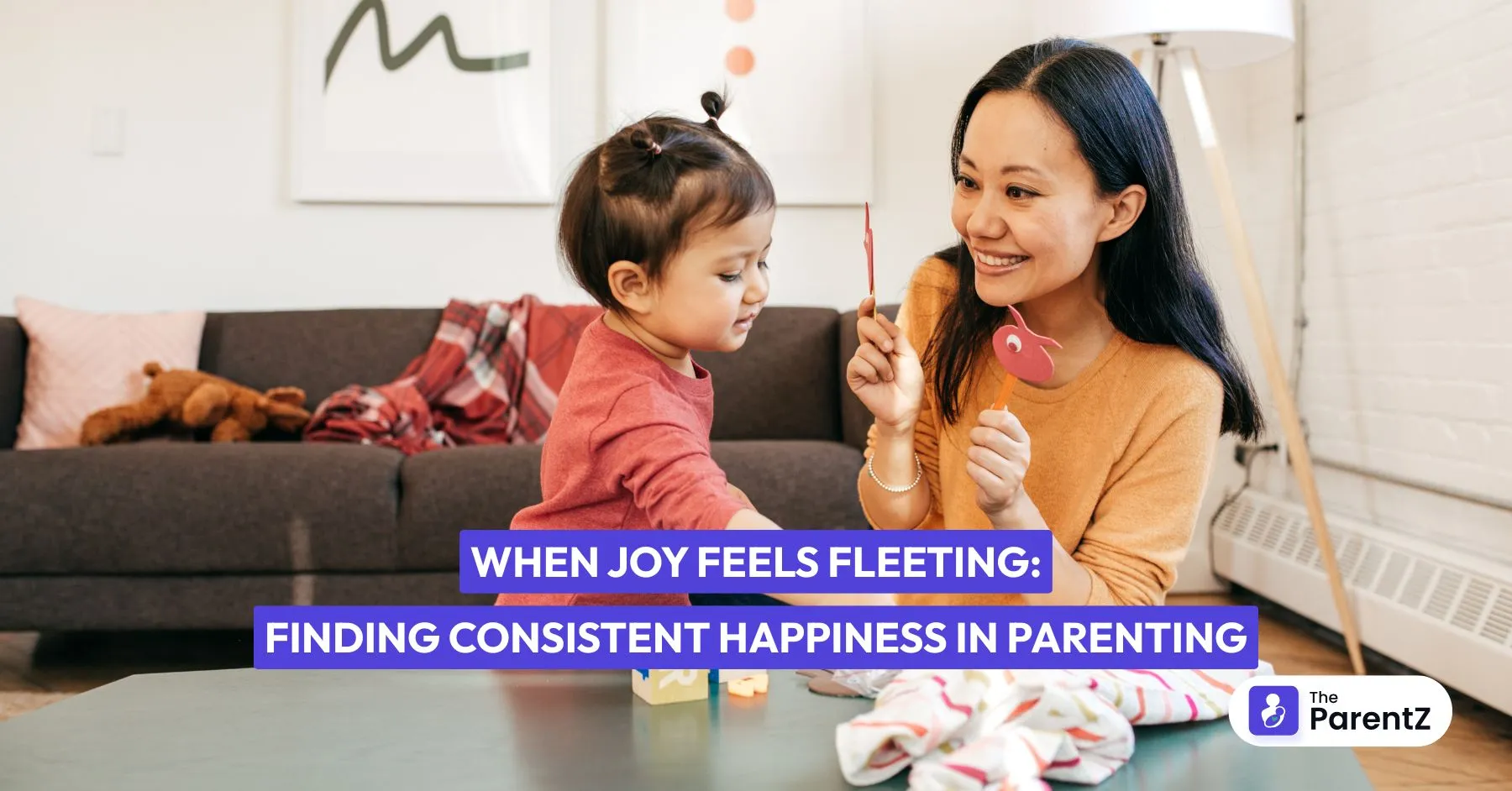Introduction
Parenthood is often portrayed as a journey filled with joy, laughter, and unconditional love. And while these moments do exist, many parents quietly admit that joy sometimes feels like a fleeting visitor. Between sleepless nights, emotional overload, and the never-ending to-do list, consistent happiness can feel just out of reach. But what if happiness in parenting isn’t about feeling joyful all the time? What if it's about learning to find steadiness, meaning, and presence amidst the chaos?
This article explores why happiness in parenting can feel inconsistent and how you can reconnect with it in real, sustainable ways.
The Fleeting Nature of Joy in Parenthood
Why Does Joy Feel So Brief?
- Daily stress: Managing work, home, finances, and a child’s needs leaves little room for self-reflection or emotional rest.
- Unmet expectations: Many parents expect to feel constant happiness once they have children. When reality doesn’t match that narrative, guilt and confusion can set in.
- Comparison trap: Social media often amplifies only the perfect, smiling moments of parenting, leading others to feel inadequate when their daily life looks much messier.
- Emotional fatigue: Constant caregiving can drain emotional reserves, making it hard to feel light, carefree joy.
Redefining Happiness as a Parent
From Momentary Joy to Deep Fulfillment
Consistent happiness doesn't mean you're always smiling. Instead, it’s about cultivating a sense of peace, connection, and purpose even when things aren’t perfect. This shift in mindset—from chasing "big joy" to appreciating "small peace"—can make all the difference.
Focus on Meaning Over Mood
- Parenting is purposeful work, even when it doesn’t feel immediately rewarding.
- On tough days, ask yourself: What did I offer my child today that mattered? This could be patience, presence, or simply feeding them when they were hungry.
Practical Ways to Find Consistent Happiness
1. Reclaim Tiny Moments for Yourself
- You don’t need an entire day to recharge. A quiet 10 minutes with a book, a hot cup of tea, or a walk around the block can help you reconnect with yourself.
2. Practice Mindful Presence
- Being fully present—even for one minute—while watching your child laugh or sleep can bring grounding peace. Let go of multitasking during some of these moments.
3. Celebrate the Small Wins
- Did your toddler say “thank you”? Did your teen open up about their day? These are emotional victories. Don’t overlook them.
4. Limit Comparisons
- Remember: social media shows the highlight reel, not the full story. Your messy living room and sleepless nights are more common than you think.
5. Ask for Help—Without Guilt
- You don't have to do everything alone. Ask your partner, friends, or family to share the load—even if just for a nap or a solo grocery trip.
6. Talk About It
- Share your emotional ups and downs with other parents. It can be deeply healing to hear someone else say, “I feel that way too.”
Let Go of “Perfect Parent” Syndrome
The pursuit of perfection in parenting can actually be one of the biggest blocks to happiness. Children don’t need perfect—they need real. They need your love, attention, and forgiveness—not flawless birthday parties or gourmet meals. Consistent happiness grows when we let go of unreasonable expectations.
Finding Peace in the Chaos
Joy in parenting isn’t always loud or obvious. Sometimes, it's the quiet kind that sneaks in during bedtime stories or when your child unconsciously reaches for your hand. It’s not about avoiding the hard moments but finding purpose within them.
Conclusion
If you're feeling like joy is slipping through your fingers in the thick of parenting, you're not alone. But you don’t have to wait for a perfect day to feel fulfilled. By slowing down, celebrating the small stuff, and letting go of impossible ideals, you can begin to uncover a quieter, steadier kind of happiness—one rooted not in constant smiles, but in deep connection, meaning, and love.
Because in the end, parenting isn’t about being happy all the time—it’s about building a life where love and joy have room to return, again and again.





Be the first one to comment on this story.